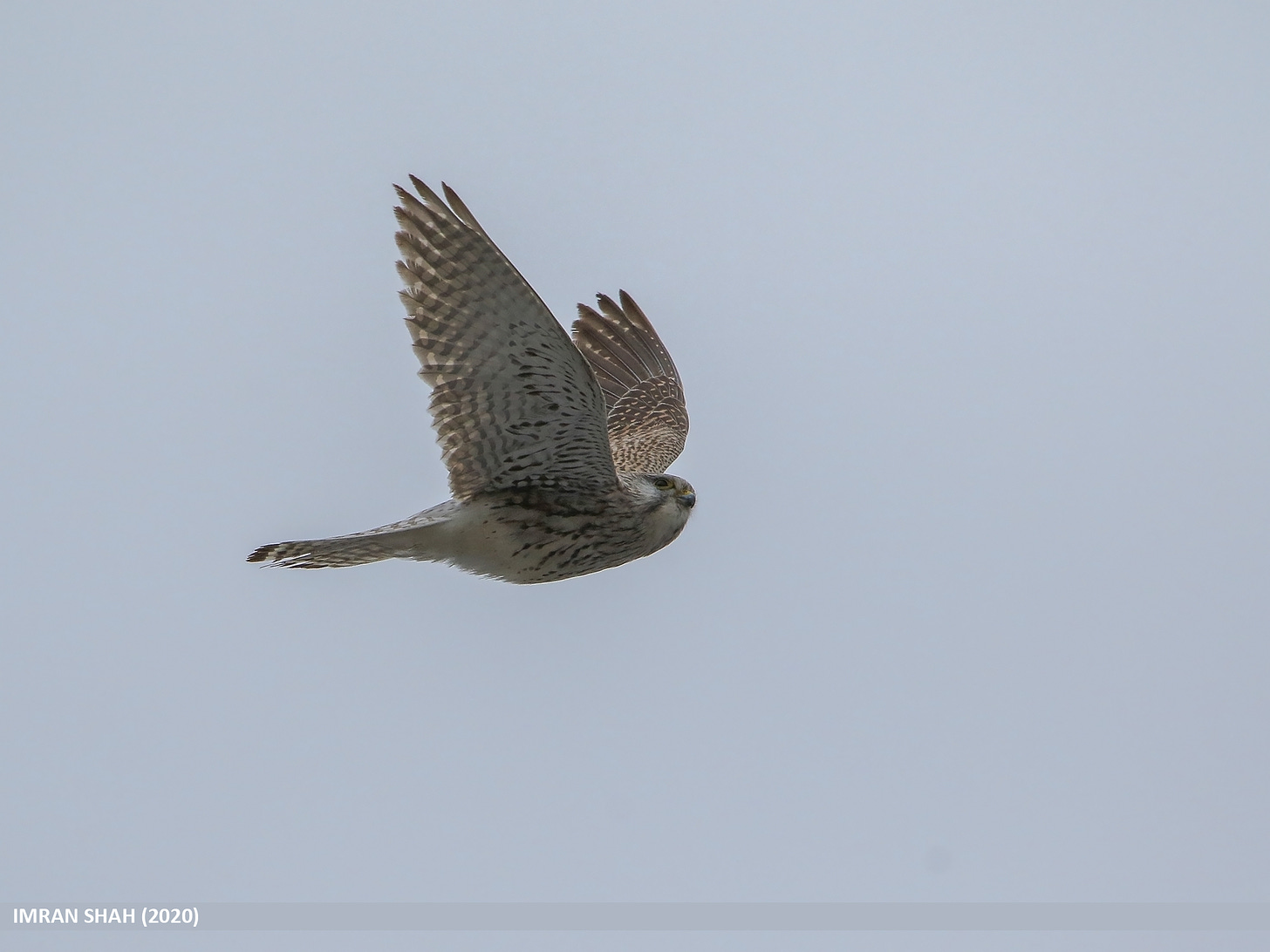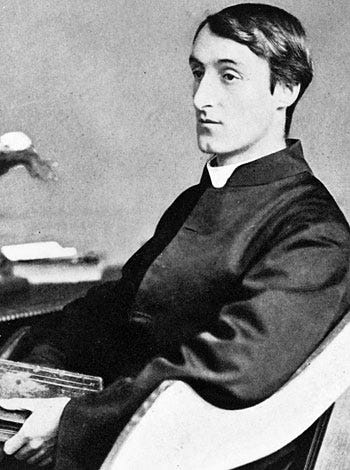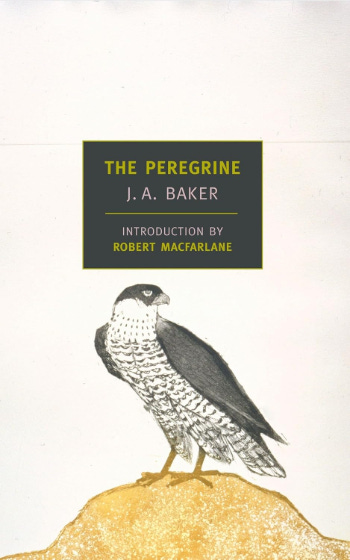Today’s Poem: The Windhover
Revisiting solitary eccentrics, their compulsive prosodies, and the glory of the hawk

The Windhover
by Gerard Manley Hopkins
To Christ our Lord
I caught this morning morning’s minion, king —
dom of daylight’s dauphin, dapple-dawn-drawn Falcon, in his riding
Of the rolling level underneath him steady air, and striding
High there, how he rung upon the rein of a wimpling wing
In his ecstasy! then off, off forth on swing,
As a skate’ s heel sweeps smooth on a bow-bend: the hurl and gliding
Rebuffed the big wind. My heart in hiding
Stirred for a bird, — the achieve of, the mastery of the thing!
Brute beauty and valour and act, oh, air, pride, plume, here
Buckle! AND the fire that breaks from thee then, a billion
Times told lovelier, more dangerous, O my chevalier!
No wonder of it: shéer plód makes plough down sillion
Shine, and blue-bleak embers, ah my dear,
Fall, gall themselves, and gash gold-vermilion.
═══════════════════════(In the early weeks of Poems Ancient and Modern, last February, we presented to our small initial audience several poems that have struck us as worth reviving for our now-increased readership. Last week we featured a reprint of Robert Graves’s “In the Wilderness.” This week we bring you a revival of our first look here at Gerard Manley Hopkins — with a bonus consideration of the British nature writer J.A. Baker.)
Britain used to be, and perhaps still is, full of solitary, hyper-focused eccentrics, of whom John Alec Baker (1926–1987) was one notable specimen. J.A. Baker, Chelmsford branch manager for the British Automobile Association, was a man whose entire consciousness seems to have consisted of a fascination not with cars, but with hawks.
We know about him only because he set that consciousness down in writing. His 1967 book The Peregrine, distilled from ten years’ worth of birdwatching diaries, reads as the account of a single year, recording its author’s excursions on foot through the fields and estuaries, the copses and shingled sea-verges of the Essex coast. This flat, wet, seemingly empty landscape, as he observed it, teemed with drama: the lives and deaths of birds.
Baker observed hawks and their prey with the drivenness of the monomaniac. He channeled the same drivenness into writing about them. As consumed as he was by birds, in The Peregrine these birds become a vehicle for his other compulsion, which was the construction of sentences. Entry after entry contains passages like this one:
He fell so fast, he fired so furiously from the sky to the dark wood below, that his black shape dimmed to grey air, hidden in a shining cloud of speed. He drew the sky about him as he fell. It was final. It was death. There was nothing more. There could be nothing more. Dusk came early. Through the almost dark, the fearful pigeons flew quietly down to roost above the feathered bloodstain in the woodland ride.
As the contemporary nature writer Robert McFarlane has pointed out, Baker’s prose practice was really a prosody. He kept tallies of stressed and unstressed syllables in his writing, and of patterns of metaphor, simile, and verb. What he produced by this obsessive attention to the dramatic possibilities of syntax makes for compelling reading. Page after page, entry after entry, The Peregrine demands of the reader something like its author’s own obsessive focus: the same heightened attention we bring to the reading of a poem.
In his dynamic written English, tightly governed by an intuitive prosodic system, Baker resembles another solitary eccentric who, if the imaginative record he left behind can be taken at all autobiographically, walked out one spring day in 1877 and was transfixed by the flight of a kestrel. Gerard Manley Hopkins (1844–1889), then in formation as a Jesuit, had returned to poetry-writing only in 1875, after a nine-year renunciation. Only his reading of the medieval Scottish-born philosopher John Duns Scotus (d. 1308) would convince him to resume the poems which must surely have come upon him as compulsions, whether he let himself be governed by them or not.
In 1877 Hopkins would be ordained to the priesthood; failing his final theology exam would doom him never to advance beyond the grind of parish work or teaching. Twelve years later, in Dublin, after a career of crushing labors, emotional anguish, social isolation, and ill health, he would die of typhoid with the words I am so happy on his lips.

But on that May day in 1877, none of the rest of his life had happened to him yet. “The Windhover” (the title is simply a colloquial name for the common kestrel) shows us Hopkins’s own striking language and idiosyncratic prosody, which he articulated, or justified, in a theory of “sprung meter.” The poem marks Hopkins’s intense observation of a hawk’s flight and stoop: the same action that Baker observes, almost a century later, in his peregrine’s lightning kill.
Hopkins’s poem assumes the form of a Petrarchan sonnet, its structure the recognizable octet (the opening eight lines) and sestet (the closing six lines). The octet, as the poem’s longest section, establishes the kestrel in the air, “riding” “the rolling level” of the “steady air” beneath him. The two tercets that compose the last six lines resolve the bird’s beautiful flight into a focused, deliberate pursuit: to stoop and strike its prey.
The meter is, again, recognizable as pentameter. The opening line, which scans as standard iambic pentameter, cues us to read the rest of the lines that way. But from the second line forward, Hopkins’s own eccentric ear clusters its stressed syllables with extra unstressed ones, like musical triplets. The lines are simply packed with sound, and bursting at their seams. All that sound, too, is dynamic: runs of alliteration and strange word choices that arrest the attention at every turn.
All that, to say the same thing that Baker says in his prose passage. But there’s one essential difference, more essential even than the difference between poetry and prose. “It was final,” writes Baker of the hawk’s strike. “It was death. There was nothing more. There could be nothing more.”
For Hopkins, dazzled by the same drama of sky and earth, life and death, there is always something more. For him, reality is sacramental. Everything in that world is indwelt by the infinite power and infinite love of the mind that made it. The hawk in its soar and stoop is, like all creation, charged with the grandeur of God. For Hopkins, to observe is to make an act of praise.







Hopkins is discussed as a metrical innovator, an alliterator and (of course) as a religious poet, but I sometimes think the key thing about him as a writer is his extraordinary powers of *noticing stuff*. He is intensely attentive to the specificities of the world, and renders that close, sacred attention in his work. Geoffrey Grigson records an anecdote: "a story is told of one of the Jesuit fathers at Stonyhurst pointing out the young Hopkins to the gardener and telling him that Hopkins was a very fine scholar. The gardener replied that he had seen him hanging around and staring at a piece of glass on one of the paths: he had taken him for a 'natural'..." That's Hopkins: entirely consumed by the particular thing, its beauty and wonder and holiness, he is observing.
My favorite poet ever. One of my favorite poems. Thanks so much for re-sharing this, and for the information on Baker; that book is now on my Amazon list. :) Hopkins ability to describe what he sees, and his seeking of its inscape -- there are no words. I always made my students put together a reading at the end of the semester when I taught my Hopkins course, because it is in the reading aloud, I think, that you finally really "get" the work. They often said it amazed them to find how much more they understood and appreciated through it.